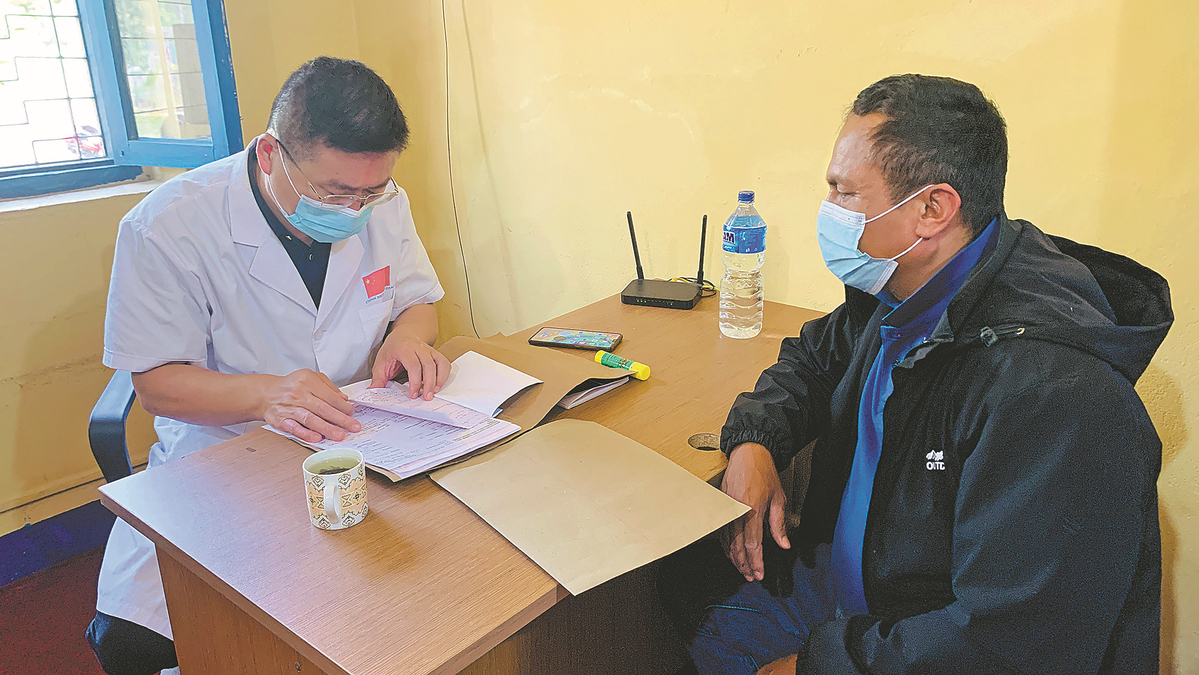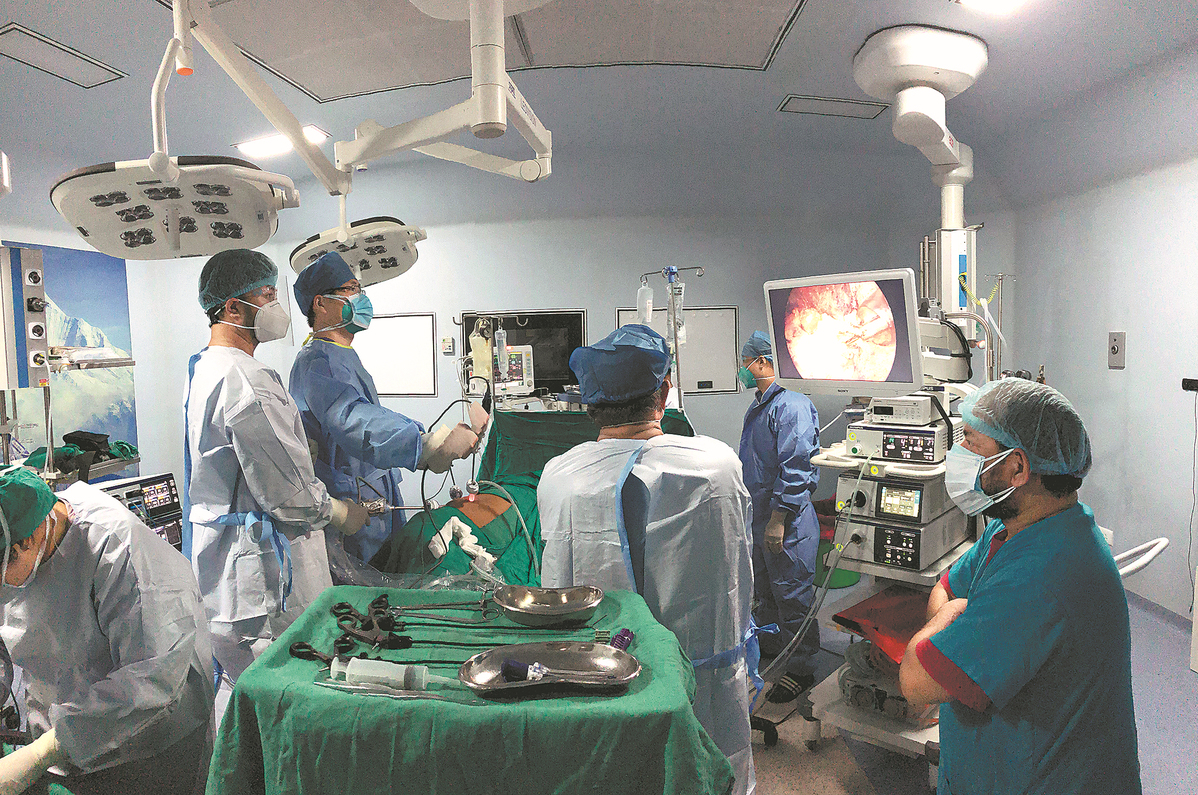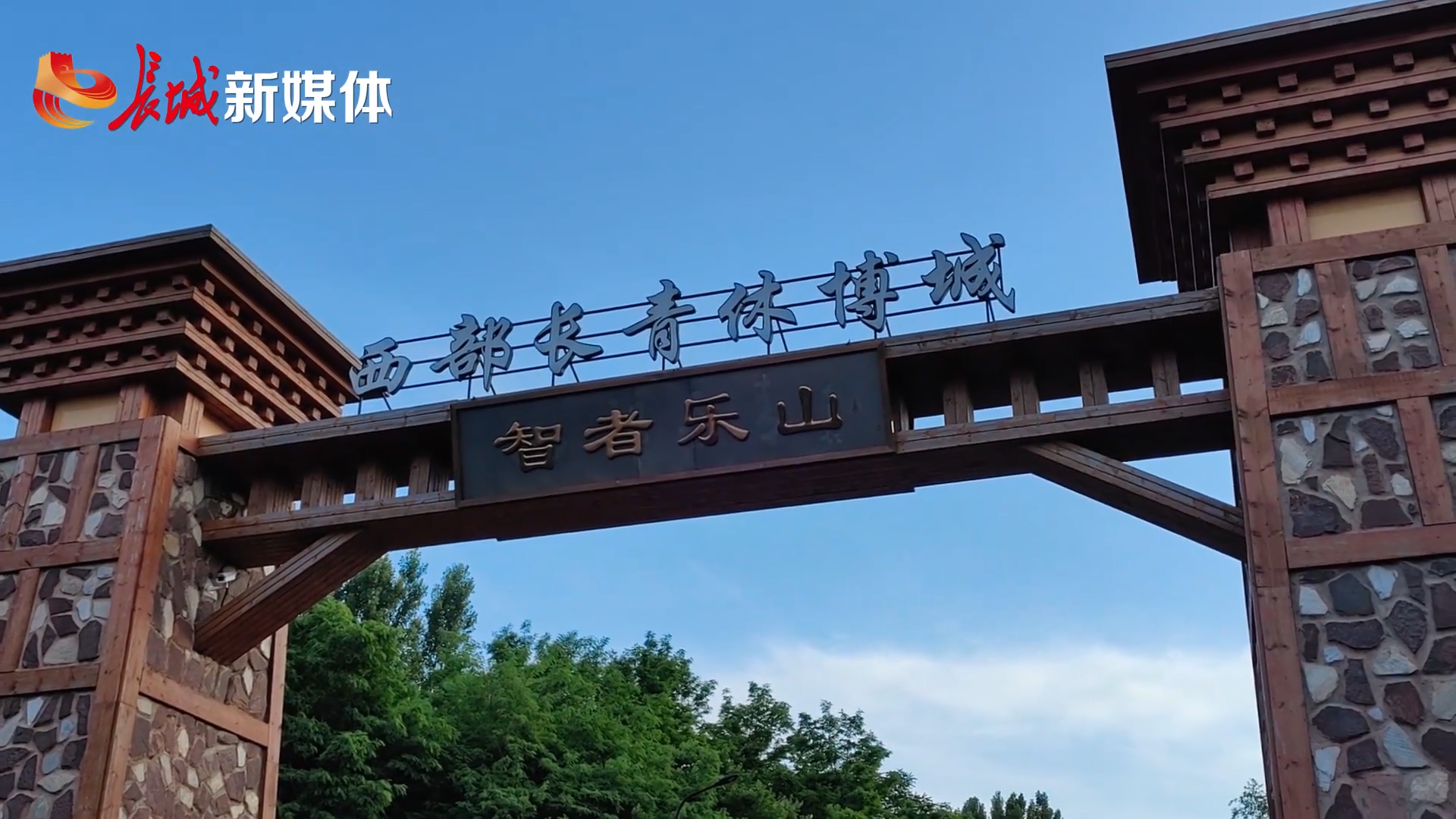
Zhang Wei treats a Nepali patient at the B.P. Koirala Memorial Cancer Hospital in Nepal. [Photo provided to China Daily]
Zhang Wei is proud to have helped put together the 13th Chinese medical team that conducted minimally invasive surgeries at a cancer hospital in Nepal, contributing to the advancement of the country's healthcare services.
Zhang, who led the team of 17 medical professionals and is also head of the Urology Department at the Baoding-based Affiliated Hospital of Hebei University, specializes in minimally invasive surgeries on urological tumors.
Such surgeries are preferred over general operations because they cause less trauma to the body and less postoperative pain for the patient. In addition, patients can recover more quickly.
During their mission from September 2020 to June 2022 at the B.P. Koirala Memorial Cancer Hospital in central-southern Nepal, Zhang and his team not only saved some local patients' lives, but also introduced advanced medical techniques and traditional Chinese medicine to Nepal.
The hospital was built with a grant from the Chinese government in December 1998. China began sending medical teams the following year.
"Despite being Nepal's most comprehensive cancer hospital, minimally invasive surgeries were not being conducted often enough due to inadequate equipment and limited awareness," Zhang said, adding that his primary focus at the hospital was on developing minimally invasive laparoscopic surgeries.
According to Zhang, based on the efforts of previous Chinese medical teams, he and his team, successfully performed multiple complex laparoscopic surgeries during their 21-month stay.
Among them was the successful removal of a massive pheochromocytoma (a type of tumor) through retroperitoneal laparoscopy-a high-risk procedure.
"The patient had been refused admission by several hospitals in Nepal due to the high risk of the surgery and its high degree of difficulty," Zhang said.
Upon learning of the Chinese medical team's presence, the patient traveled over four hours to reach the hospital.

Members of the 13th Chinese medical team conduct a minimally invasive surgery at the hospital in Nepal. [Photo provided to China Daily]
"Despite the daunting surgical challenges, our medical team was determined to tackle this difficult case, giving hope and health to the patient," Zhang said.
With his expertise in laparoscopy, the team managed to minimize the surgical risks and ultimately achieved success.
Hospital director Nirmal Lamichhane, who initially worried about the team performing the surgery due to its high mortality rate, was amazed at the successful outcome. "It was the first retroperitoneal laparoscopic resection of a massive pheochromocytoma at our hospital, and also the first in our country," Nirmal said.
Zhang recalled how grateful the patient's family members were. They presented the medical team with a commemorative banner to honor its efforts.
During their mission in Nepal, the team handled over 6,000 outpatient cases and participated in more than 600 surgeries.
"During the surgeries, we invited local doctors to participate so that they could observe and carry out similar surgeries with the new method after we left," Zhang said.
He added that with the hospital's equipment improving, its doctors have learned related techniques that can help them conduct minimally invasive surgeries.
"I think it is more helpful to teach people how to operate with improved methods," he said.
Hebei has a long history of dedicating its medical professionals to overseas efforts.
Last year marked the 60th anniversary of China's foreign medical aid program, and the 50th anniversary of the province's participation in it.
Over the past five decades, Hebei has dispatched 36 medical teams comprising 809 individuals to the Democratic Republic of the Congo and Nepal, treating over 6 million patients, according to a report by Hebei Daily.
Editor: Li Wenpei






